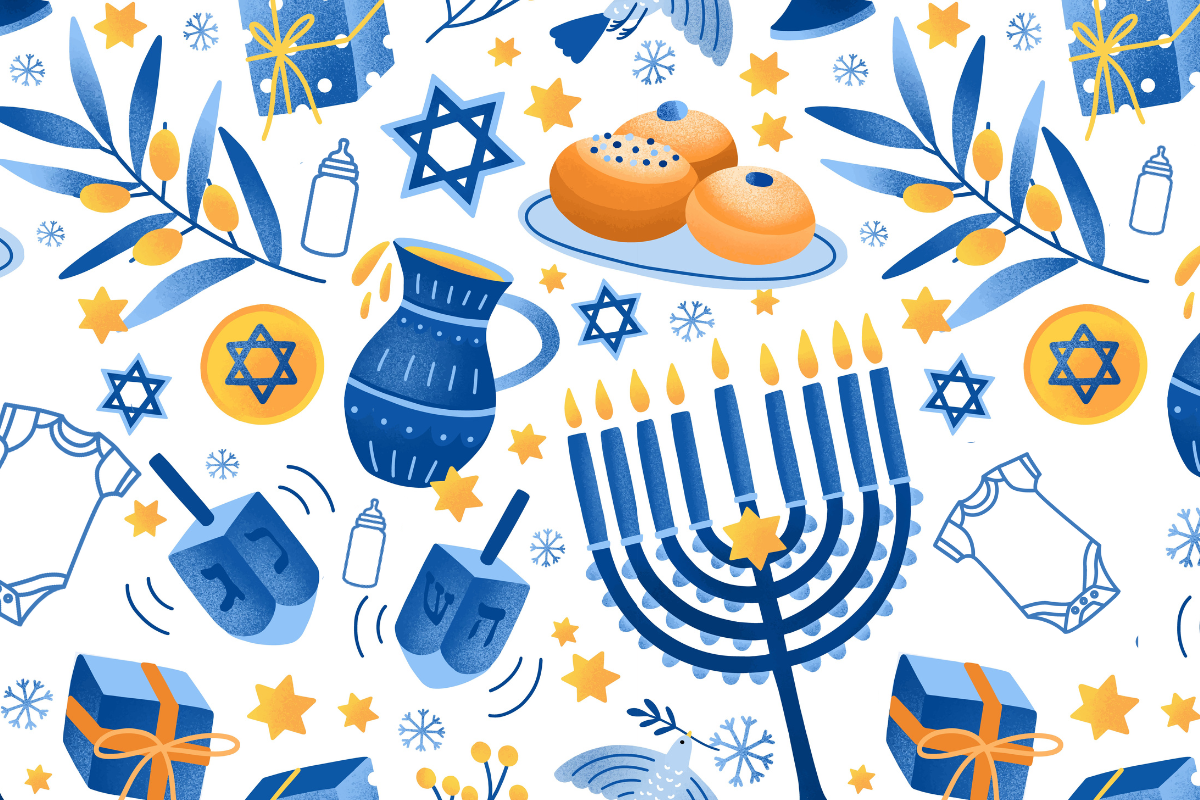There’s nothing wrong with being born on Christmas. Many noteworthy individuals have a December 24th or 25th birthday. Not, of course, Jesus, whose birthday is never mentioned in the Gospels. His big day was chosen by the Romans centuries after his death, likely to supplant pagan holidays that fell at the same time. But regardless of murky origin stories, the list of legitimate Christmas babies includes the scientist Isaac Newton, film star Humphrey Bogart and metal singer Lammy Kilmister. All legends in their fields.
Still, when our daughter was given a December 24 due date, my wife and I had some reservations. A winter birthday in New England is dreary enough already. But a Christmas birthday risks becoming an afterthought. Friends wouldn’t be around for parties. Birthday balloons would be eclipsed by Christmas lights. Nativity scenes would remind our daughter that, for much of the world, someone else’s birth was more important. No matter how special your parents say you are, it’s hard to compete with being called the son of God.
Then again, there were pros to her having a Christmas birthday. The date would be easy to remember. She’d always get a holiday from school or work. The Jewish obstetrician would be available for the delivery. And, as Jews ourselves, we’d finally have a reason to celebrate on Christmas. For us, too, Yuletide would now be a season of gift giving, good cheer and hymns to a momentous birth. (Though admittedly, the “Happy Birthday” song lacks the gravitas of “Silent Night.”) Maybe we’d even crack some eggnog in the hospital to celebrate.
What to do on Christmas is a paradoxically Jewish question. (For Christians, even nominal ones, it’s not a question: you celebrate.) Historically, Christmas was a dark period for European Jews, who faced the perennial accusation of killing Jesus. To avoid being attacked, the traditional advice (and sometimes the law) was to stay indoors. For an embattled minority in Christian-dominant countries, Christmas was a time to be wary, not to be merry. So while even many non-Christians celebrate Christmas in America now, the Jewish relationship with the holiday remains fraught.
Today, thankfully, some less somber Jewish Christmas traditions than hiding out in fear have developed. Members of Chabad hold night-long chess tournaments on Christmas Eve. Other Jews go out for Chinese food and see a movie on Christmas Day. And some Jews, especially those with non-Jewish partners, do celebrate Christmas, perhaps adding a Star of David ornament to their tree. Now, it seemed, my household would have a Jewish Christmas tradition to call our own. We wouldn’t be getting a tree, but there would be presents under the mezuzah on Christmas Eve.
However, as it turned out, our Jewish Christmas birthday celebration wasn’t meant to be. My wife went into labor three weeks before her due date, which in 2021 meant day seven of Hanukkah. (Or, to be more precise, the middle of the night on day seven.) After over 14 hours in the delivery room, our daughter was born on the evening of December 5, right around the time we would have been lighting the menorah for day eight. She was, we like to say, our Hanukkah miracle. And since her birth took the place of lighting the candles, it only seemed right to name her Liora, which is Hebrew for “light of mine.”
It’s not as if we would have named her Holly and decked the halls if she had been born on Christmas Eve. And a Christmas birthday, I’m sure, really isn’t so bad. Still, there’s something low-key miraculous — like a jug of oil lasting eight days — about a Jewish baby due on Christmas arriving on Hanukkah instead. You can call it a simple twist of fate, or you can wonder, to quote G.K. Chesterton, if “coincidences are spiritual puns.” Maybe some babies just happen to be born on one significant date instead of another. And maybe some oil just burns for an exceptionally long time. But having witnessed my daughter’s birth, I’m open to the possibility of a touch of the divine.
Although it roughly coincides with Christmas, Hanukkah is a comparatively small Jewish holiday. Unlike larger Jewish festivals, there are no solemn rituals to outweigh a birthday celebration. A Yom Kippur birthday means asking for forgiveness and all-day fasting. A Passover birthday means remembering slavery and eating unleavened cake. A Hanukkah birthday means one more reason to shine a light and eat oily foods. Instead of being overshadowed by a major festival, our daughter’s birthday has upgraded the status of a minor one.
In our household, at least, the revolt of the Maccabees has been joined by a new Hanukkah story: the miraculous early birth of a Jewish Christmas baby.








